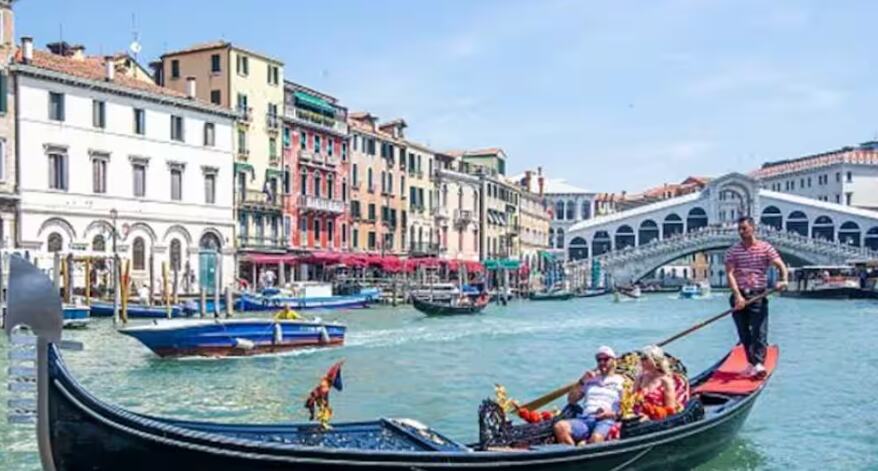UNESCO Urges Immediate Action as Venice Faces Irreversible Damage
Venice, known for its canals, faces irreversible damage and should be added to the list of heritage sites at risk, says UNESCO. Overwhelming tourism, overdevelopment, rising sea levels, and lack of preservation strategies are major concerns. The Italian government must prioritize addressing these issues.
Venice, the iconic Italian city known for its canals and cultural sites, is in danger of irreversible damage and should be added to the list of heritage sites at risk, according to the United Nations Educational, Scientific and Cultural Organization (UNESCO).
In a report highlighting overwhelming tourism, overdevelopment, and rising sea levels due to climate change as major threats, UNESCO called on the Italian government to prioritize addressing these long-standing issues. The agency also criticized the lack of a joint strategic vision for the long-term preservation of the city and the insufficient and vague corrective measures proposed by Italy.
Venice, designated as a world heritage site by UNESCO, is among the 1,157 places currently listed. However, at a meeting in September, a committee of 21 UNESCO member states will review over 200 sites, including Venice, to determine which should be added to the danger list.
Other sites recommended for inclusion this year are the cities of Kyiv and Lviv in Ukraine. The impact of mass tourism on Venice has been a significant concern for years. During the 2019 Carnival, approximately 193,000 people crowded into the historic center in a single day.
To control visitor numbers, the city has been planning to introduce a fee for day-trippers, but objections have caused delays in its implementation. The Venice municipality spokesperson stated that they would carefully review the proposed decision from UNESCO's World Heritage Committee and discuss it with the Italian government.
However, Venice's former mayor, Massimo Cacciari, criticized UNESCO, calling the agency expensive and useless. He argued that Venice does not need UNESCO's designation to be recognized as a world heritage site and emphasized the need for action instead of mere criticism.
UNESCO had previously proposed including Venice in the danger list two years ago, but emergency measures adopted by the Italian government prevented its inclusion. This included banning large ships, such as cruise ships, in the San Marco Canal, as well as promising an ambitious conservation plan for the city.
However, the plan was never implemented, and Unesco experts have repeatedly requested updates and a timetable from the Italian government, which have been deemed insufficient. The impact of climate change, with rising sea levels and increased flooding, poses a significant threat to Venice.
Additionally, the city's popularity with tourists has led to urban expansion projects that further damage its historic sites. UNESCO suggests keeping high-rise buildings away from the city center to avoid a negative visual impact.
Overall, Venice's inclusion in the danger list highlights the urgent need for concerted efforts to protect the city's unique heritage from the challenges posed by tourism, overdevelopment, and climate change.
The Italian government must prioritize addressing these issues and work towards a comprehensive preservation strategy for the long-term sustainability of one of Italy's most picturesque cities.




